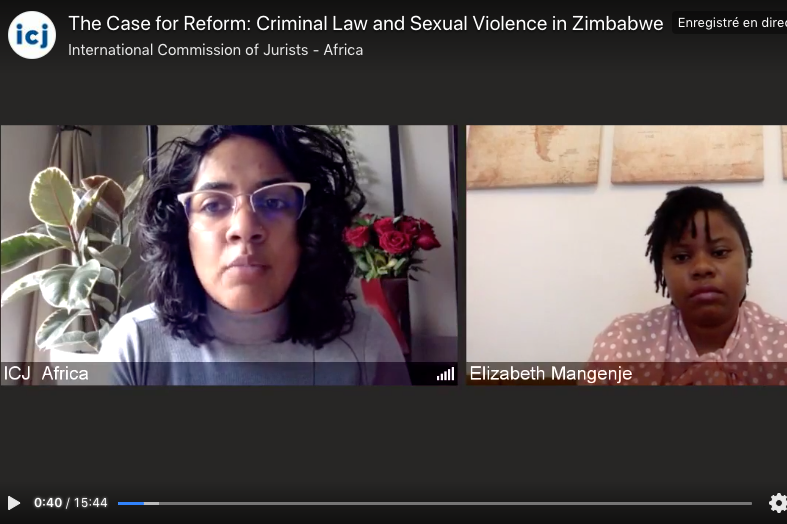ICJ’s 16 Days of Activism Against Gender-Based Violence underscores the need for justice systems to be more responsive.
The campaign commenced on 25 November, International Day for the Elimination of Violence against Women, and ended today on Human Rights Day. The campaign presented “an impact story” poster series, Facebook live interviews and opinion pieces on gender-based violence in Africa, Asia, Latin America, Middle East and North Africa.
The campaign underscored that harmful traditional norms and gender stereotypes provide the backdrop for the systematic and widespread abuse of women and girls’ human rights across the globe; it also emphasized the need to maintain essential services for survivors of gender-based violence (GBV) during COVID-19 lockdowns, including ensuring a continuum of adequate criminal justice response.
“Violence against women and girls around the world has increased in this global pandemic. Governments have a duty to ensure that their response to Covid-19 includes preventing such violence. For instance, all hotline services for reporting domestic violence must remain open during lockdowns and be considered part of essential services. The police must likewise be ready to act speedily if required. They must be made aware that women and girls are especially vulnerable at this time,” said ICJ Commissioner Ambiga Sreenevasan from Malaysia.
Throughout the campaign, the ICJ also underscored the ongoing need to support civil society organizations’ and women human rights defenders’ response to GBV, as well as the need to strengthen the judiciary’s capability to respond to GBV by enhancing its reliance on international human rights law and standards.
“The authorities have turned a blind eye to gender-based violence for far too long and it is time to prioritize combatting the phenomenon effectively, including through legislative reform and awareness raising,” said ICJ Commissioner Marwan Tashani from Libya.
Poster Series
Imrana Jalal (ICJ Commissioner, Fiji)
Mikiko Otani (ICJ Commissioner, Japan)
Ambiga Sreenevasan (ICJ Commissioner, Malaysia)
Marwan Tashani (ICJ Commissioner, Libya)
Kaajal Ramjathan-Keogh (ICJ Africa Regional Programme Director)
Saïd Benarbia (ICJ MENA Programme Director)
Carolina Villadiego Burbano (ICJ Legal and Policy Adviser, Latin America)
Sexual Violence & Criminal Law in Zimbabwe
Amy Alabado Avellano (Family Court Judge, Philippines)
Savithri Wijesekera (Executive Director of Women In Need, Sri Lanka)
Nahla Haidar (ICJ Commissioner, Lebanon)
Saman Zia-Zarifi (ICJ Secretary General)
Tshabalala v S (South African Constitutional Court judgment on the doctrine of common purpose applied to rape)
Infographic
The Case for Reform: Criminal Law and Sexual Violence in Zimbabwe
Facebook Live Interviews
The Case for Reform: Criminal Law and Sexual Violence in Zimbabwe with Elizabeth Mangenje (ICJ Legal Adviser, Africa Regional Programme)
The State of GBV in the Middle East and North Africa Region with Nahla Haidar El Addal (ICJ Commissioner, Lebanon)
Women’s Access to Justice – What does justice mean for women in the context of COVID-19? (Joint initiative of ICJ, UN Women, and OHCHR)
Women’s Access to Justice – What does justice mean for women prisoners? (Joint initiative of ICJ, UN Women, and OHCHR)
Op-eds
Mujeres, justicia y pandemia, by Carolina Villadiego Burbano
Yet another treaty aims to protect African women. But how will it be enforced? by Nokukhanya Farisè and Tanveer Rashid Jeewa




